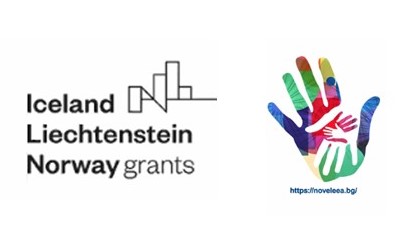
15 000 households took part in the field survey, the team gathered statisticians and human rights experts.
Thematic reports for four groups at risk – children, Roma people, old people and people with disabilities, review of selected sustainable development goals indicators and the toolkit for using data for elaborating and implementing policies were presented at the concluding conference of the Project “Novel Approaches to Generating Data on hard-to-reach populations at risk of violation of their rights”. The project is a three-year one and has been implemented by the National Statistical Institute in partnership with the European Union Agency for Fundamental Rights (FRA) and is within the Programme “Local Development, Poverty Reduction and Enhanced Inclusion of Vulnerable Groups 2014-2021” funded under the Financial Mechanism of the European Economic Area (EEA FM).
The online event took part today, 13 September, and gathered experts in statistics and human rights – representatives of the state administration, academia, NGOs and international organisations.
Back in 2019, when the work on the project began, the team was convinced that the more data we could collect on the populations at risk, the greater the opportunity for executive, legislative and local governments to develop effective policies that would ensure good life for these groups, said in the opening of the conference the NSI President Assoc. Prof. Atanas Atanasov, PhD. He thanked FRA for the shared experience, the EEA FM for the funding and all 15 000 households which took part in the field survey.
Ioannis Dimitrakopolous from FRA emphasized the importance of the project, which seeks novel methods to access populations at risk that are hard-to-reach groups, and noted more than ten years of fruitful cooperation with NSI.
According to Marton Matko, an EEA FM representative, the project is fully compliant with the programme goals – to protect human rights and to respond not only to short-term needs but also to the long-term needs of the populations at risk while seeking novel approaches for that. His colleague Sheena Keller was confident that the results achieved in our country would foster other countries also to use novel approaches for generating information.
Within the framework of the conference, the special module "Discrimination, Harassment and Violence" was also presented, with the aim of making it part of the regular studies conducted by the statistical institutes. According to Yaroslav Kling from FRA this module has been already used in Bulgaria and Slovakia.
All reports can be found on the project website: https://www.noveleea.bg/.
Copyright © 2025 NSI All rights reserved